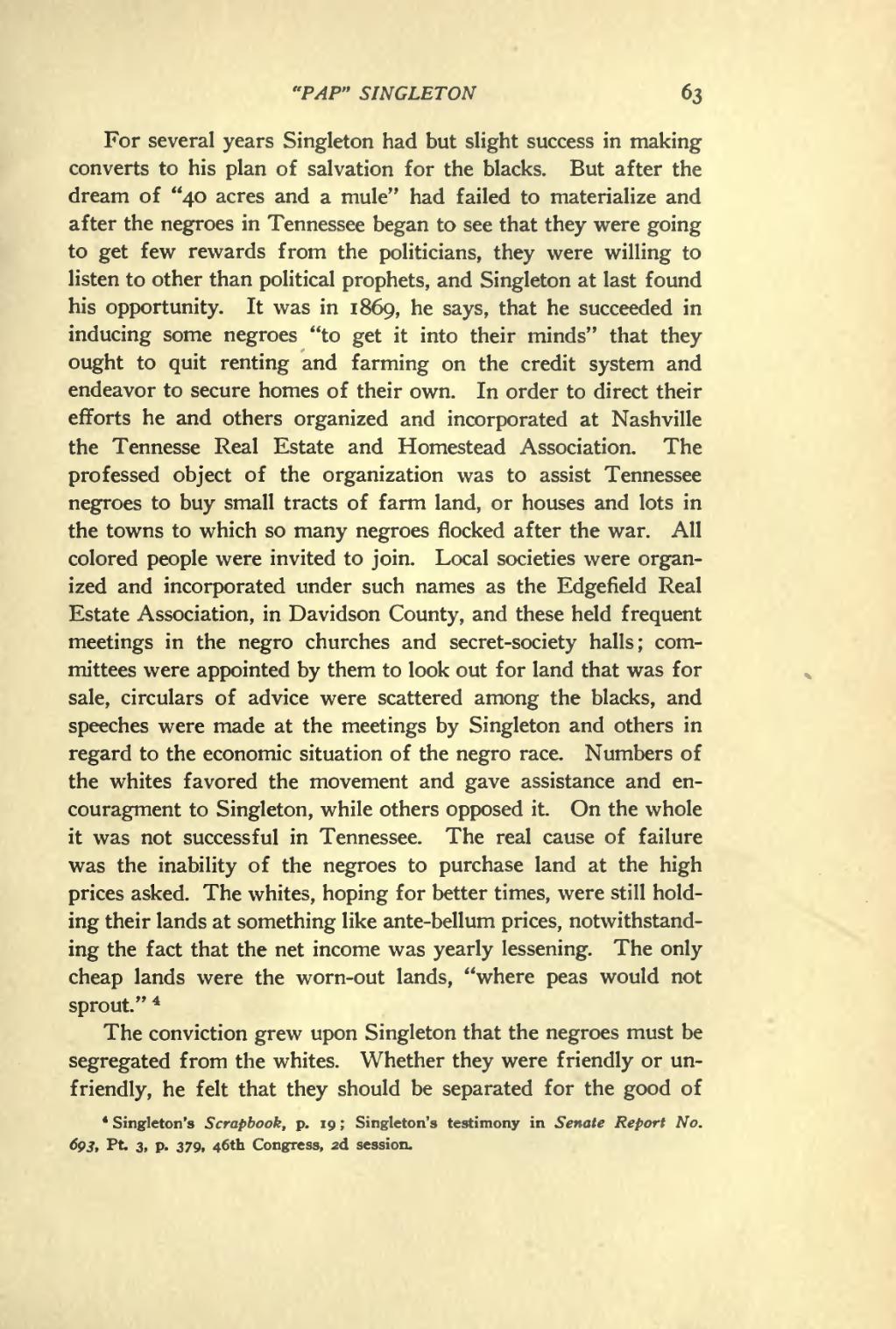"PAP" SINGLETON 6^
For several years Singleton had but slight success in making converts to his plan of salvation for the blacks. But after the dream of "40 acres and a mule" had failed to materialize and after the negroes in Tennessee began to see that they were going to get few rewards from the politicians, they were willing to listen to other than political prophets, and Singleton at last found his opportunity. It was in 1869, he says, that he succeeded in inducing some negroes "to get it into their minds" that they ought to quit renting and farming on the credit system and endeavor to secure homes of their own. In order to direct their efforts he and others organized and incorporated at Nashville the Tennesse Real Estate and Homestead Association. The professed object of the organization was to assist Tennessee negroes to buy small tracts of farm land, or houses and lots in the towns to which so many negroes flocked after the war. All colored people were invited to join. Local societies were organ- ized and incorporated under such names as the Edgefield Real Estate Association, in Davidson County, and these held frequent meetings in the negro churches and secret-society halls; com- mittees were appointed by them to look out for land that was for sale, circulars of advice were scattered among the blacks, and speeches were made at the meetings by Singleton and others in regard to the economic situation of the negro race. Numbers of the whites favored the movement and gave assistance and en- couragment to Singleton, while others opposed it. On the whole it was not successful in Tennessee. The real cause of failure was the inability of the negroes to purchase land at the high prices asked. The whites, hoping for better times, were still hold- ing their lands at something like ante-bellum prices, notwithstand- ing the fact that the net income was yearly lessening. The only cheap lands were the worn-out lands, "where peas would not sprout." ^
The conviction grew upon Singleton that the negroes must be segregated from the whites. Whether they were friendly or un- friendly, he felt that they should be separated for the good of
- Singleton's Scrapbook, p. 19 ; Singleton's testimony in Senate Report No.
693, Pt 3, p. 379, 46th Congress, 2d session.
